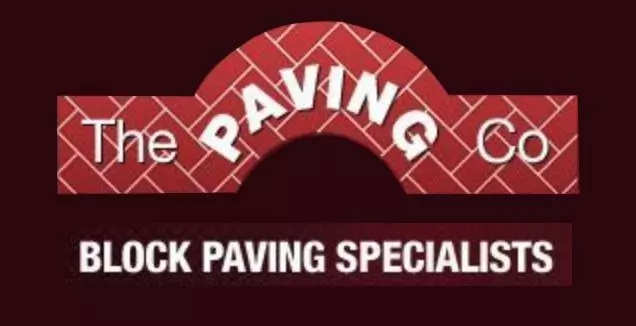What Is The Best Material To Pave A Driveway?
The best material for a new driveway depends on the taste and budget a person has, what one individual might love another might hate.
An expensive driveway material does not necessarily represent quality or durability, so it's important to research and weigh up the pros and cons before making any rash decisions.
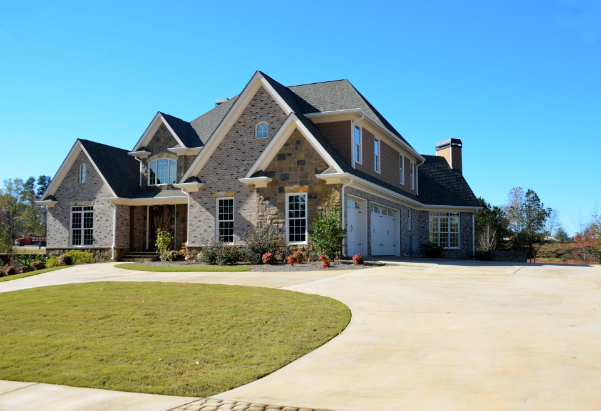
Concrete
Concrete is one of the more favoured options for driveways, the reasons being because the concrete slabs are durable and are low maintenance, making them good value for money and ideal for large driveways.
If costs play a factor in which driveway material to purchase, then concrete should be considered, it is relatively cheap compared to most other materials, but gravel and asphalt driveways are a little less expensive. The quality and durability of the concrete will depend on the pavers you have hired; poorly laid concrete driveways can crack within months, so be sure to hire a reputable and experienced contractor.
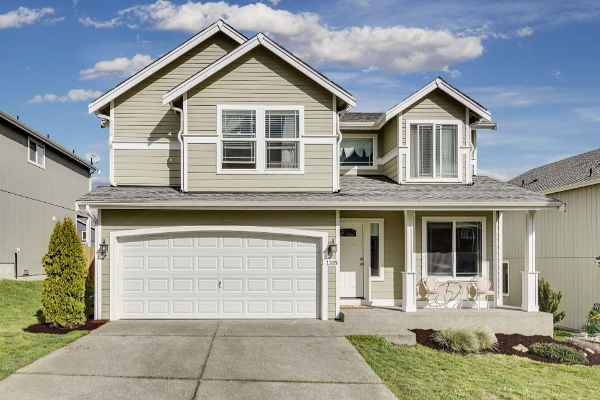
Decorative concrete
Decorative concrete, also known as imprinted concrete, gives the driveway more character and uniqueness; it comes in a wide variety of colours and patterns too.
The process for decorative concrete is the exact same as normal concrete (but with different colours) up until its time for it to set.
Once the concrete is poured and begins to set, a decorative pattern is imprinted, giving the look of individual paving stones.
One thing to consider before choosing this driveway design is that the cost is almost 50% more expensive, so your budget could play a big part in choosing this design.
Asphalt
Asphalt is commonly referred to as tarmac and is used on most UK roads, so it's easy to assume that the material has lots of benefits, but in actual fact, there are some important cons that need to be considered.
For example, an asphalt driveway has a relatively basic look; also, because of the material's properties, it expands and becomes sticky during the summer months; this can eventually make the driveway very uneven. One of the only cons of tarmac is the cost.
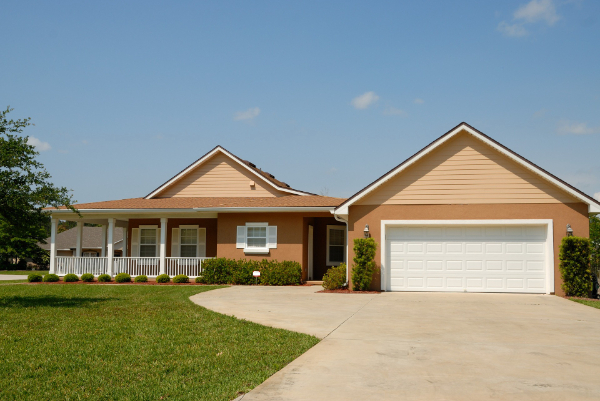
If you're on a low budget, this material will appeal to you and won't set you back a huge amount.
Gravel (The cheapest driveway material)

The cheapest driveway material of all the options mentioned in this is gravel; most individuals are shocked by this because of how visually pleasing it is.
With these pros come some massive cons; gravel maintenance is a constant struggle, and it's very hard to keep presentable. It is surprising how quickly the stones can be moved by anything from foot traffic to cars.
Therefore it requires constant upkeep and might even need topping up quite regularly; another huge problem is weeds.
Gravel is most vulnerable to the pesky plants, and you'll have to move the stones completely to get to the root of the problem.
On the plus side, this driveway material is most likely to deter thieves because of the noise it makes from people travelling on it; nobody will get to your door without you hearing them first.
Block paving
Block paving is the most popular type of driveway material, and for a good reason, the freedom of choice is unmatched, whether you want contemporary grey, classic red brick or many other colours this design provides.
The stones can be placed to create any pattern desirable to the individual, and slopes can even be incorporated into the design. Some other positives are that you're less likely to get flooding with block paving as the gaps allow drainage.
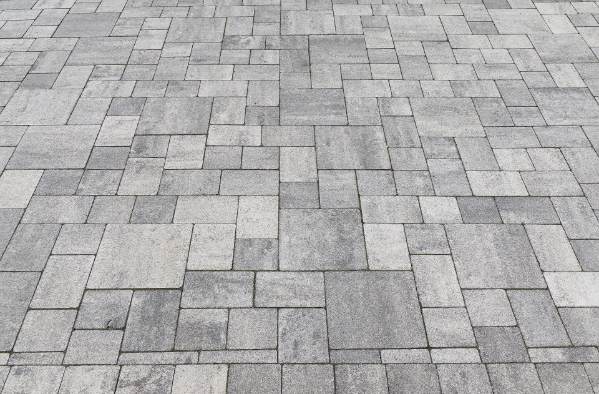
If any damage is incurred, the affected blocks can simply be removed and replaced. Keep in mind that block paving is very intricate and precise, so consult a specialist with a good reputation and years of experience.
Grass Paving
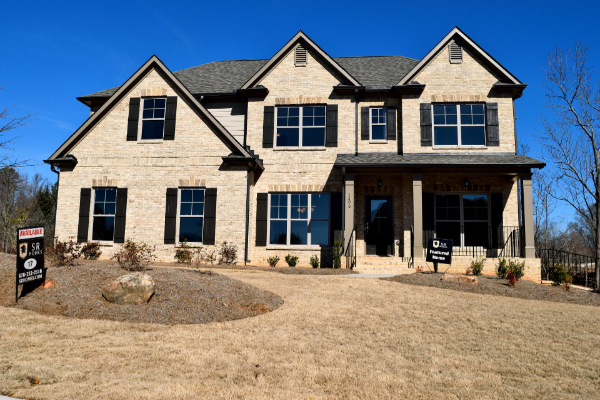
Grass paving is very eco-friendly in comparison to the other driveway materials, so if you want to do your bit for the environment, this is a good option for you. With this paving comes a large price tag and regular upkeep.
The grass paving is more prone to weeds but will look fantastic if properly maintained, so if money isn't a problem and you want to stand out from the regular driveways, this paving might be the best option for you.
Resin bonded or bound
Resin-bonded or bound driveways are very popular in the UK. Bonded is popular for its price, and bound is known for lasting much longer but for a higher price. There are some problems, however, to take into consideration, the resin can be very prone to cracks, and sunlight can cause streaking.
Resin driveways must also meet the Environment Agencies SUD's Regulations, so they must be installed by a reputable installer must be employed to meet all standards.
Most Durable Driveway Surfaces
The things that must be considered when deciding which surfaces are the most durable for driveways are safety, aesthetic features and, most importantly, weather conditions. Freezing conditions can make some surfaces slippery and unsafe, and then hot weather can expand surfaces and cause uneven ground.
Asphalt ticks all the boxes for durability and safety; however, this is only if it is fitted correctly by a reputable and experienced installer.
The reason for this being that they will normally provide the best materials and tools and recommend what drainage systems should be put in place to evacuate the water safely.
Asphalt surfaces require some maintenance costs, such as seal coating every two to three years which must be done by a professional, but all in all, the surface has great traction during winter and is easy to plough snow from.
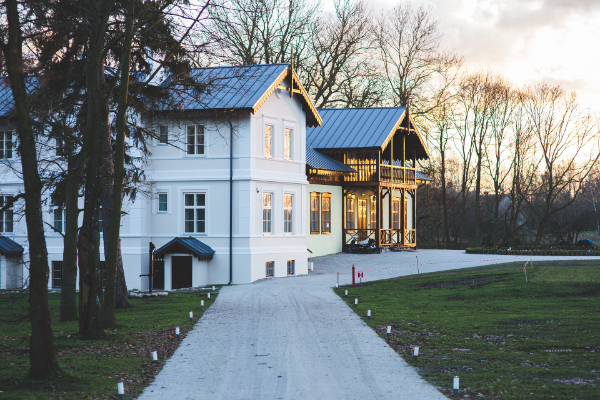
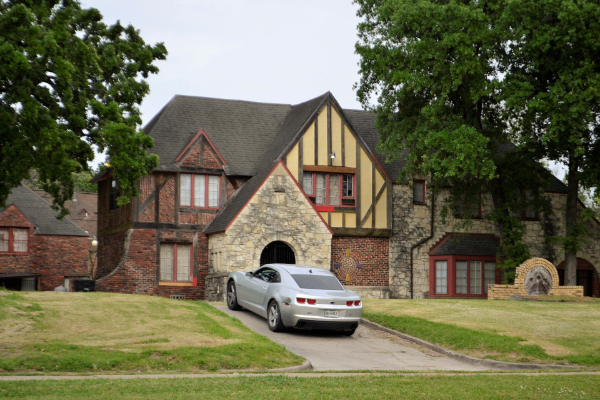
Another surface that is a strong contender for most durable is concrete; its heavy and hard-wearing characteristics make it difficult to completely damage.
If, however, the concrete gained potholes or cracks over time, the repair will be very costly and time-consuming. This is why it's essential to hire professionals when installing these types of driveways.
A con to concrete is its lack of traction in the winter months. After long term heavy use, the freeze-thaw cycle can leave the driveway hazardous to cars and pedestrians.
Gravel might win you over for its aesthetically pleasing look or low prices, but its lack of durability might change your mind.
This surface will need constant upkeep and resurfacing, not to mention heavy maintenance during winter weather; heavy snowfall will be nearly impossible to plough without damaging the gravel.
If, however, you are living in a hot region all year round, this might not be a problem for you.

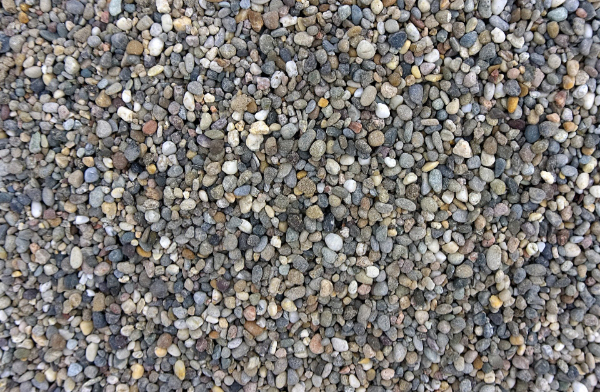
Paved driveway stones do offer some durability, so long as there is good maintenance and professional installation, the surface is unlikely to break or crack, and if it does, the problem is easy to resolve.
Due to its slippery surface, the paver stones are not ideal for places that will be exposed to oil or are prone to freezing conditions and snow. It is difficult to plough and will require proper drainage systems to prevent flooding.
Choosing the right driveway for you
When choosing which driveway is suitable for you, there are a number of things to consider. Is it within your budget both now and for its future maintenance? Is it cost-effective? Is it safe for all weather conditions in your location? Does it match your aesthetic and your preferred style?
First, you must choose the material; if your driveway is going to be used by children to play on, guests to use, as well as for parking your car, then the best options for you are concrete, or asphalt and they are easier to clean and are more durable.
If, however, you are simply using the driveway for parking your car, then your options are varied.
One important thing to mention is the introduction of Suitable Drainage Systems by the government; it was put in place because houses were being developed over the mains sewer network.

The result of this means that homeowners who wish to pave their property with hardstanding greater than five square meters must obtain planning permission. Still, if they are using a permeable material that is SuDS compliant, then this is not required.
Maintenance
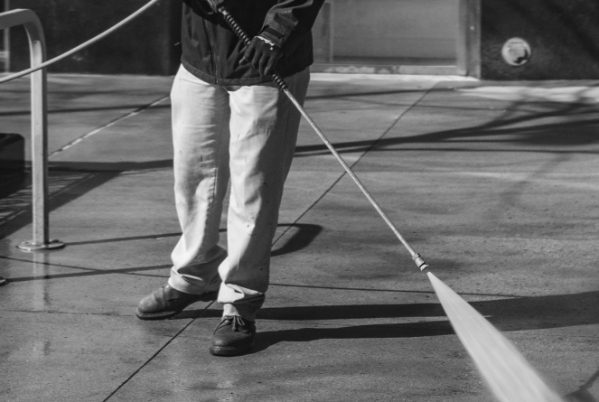
Maintenance is key for any part of a home, but some driveways require a lot of it. If you have the time and money spare to do this, then a gravel driveway might be for you.
It comes in a wide range of colours and overall is pleasing to the eye; the spray of stones from vehicles and people can require neatening a cleaning, but there are nets on the market to reduce this.
If maintenance isn't something you want to factor in when choosing the driveway for you, then concrete, asphalt or bound and bonded resin is for you. Block paving is quite minimal for upkeep, but weeds can sometimes find their way through the gaps in the blocks.
Tarmac surprisingly comes in a range of colours and textures. It can also be laid on top of other driveway surfaces and provides a good grip in cold weather conditions.
To conclude, when picking your driveway surface and materials, it's best to consider what your driveway will be used for, how much your budget is and the weather conditions in your region.
Then, do some research to acquire the material that best suits your taste and contact a professional to check current regulations.

Are you considering a new driveway in Southend and Essex? Contact our block paving specialists today.
